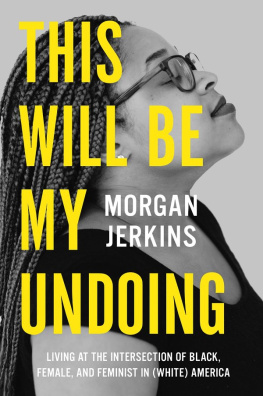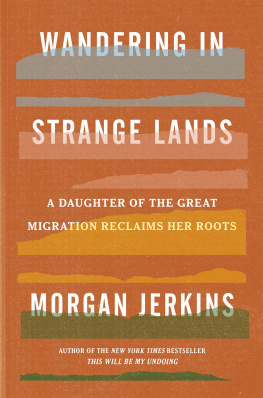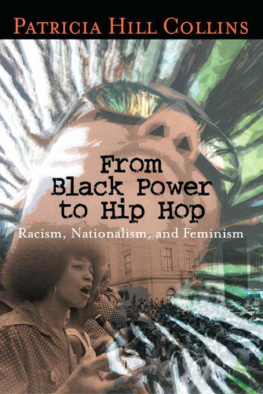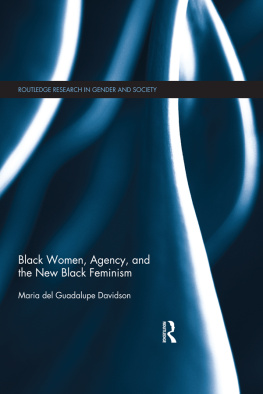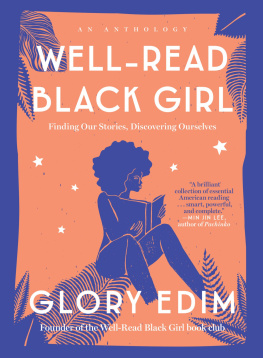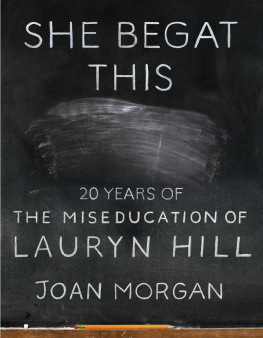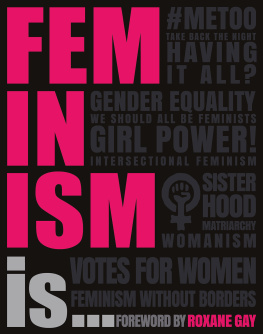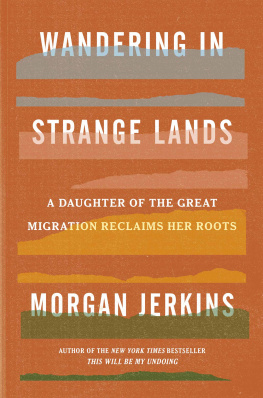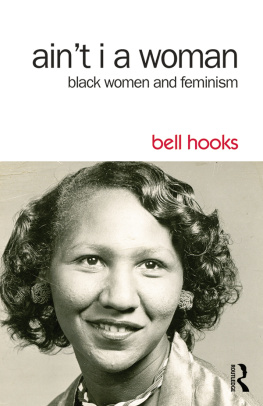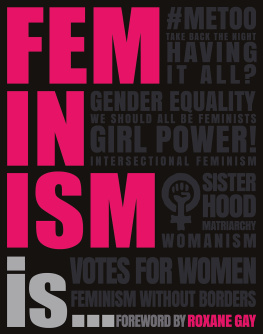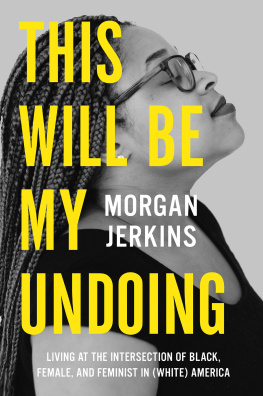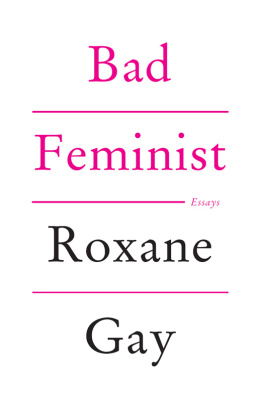For You
I am the first and the last
I am the honored one and the scorned one.
I am the whore and the holy one
I am the wife and the virgin
I am the barren one and many are my daughters....
Daughters of the Dust
Contents
Monkeys Like You
When I was ten, the only thing I wanted was to be a white cheerleader. Bone-straight hair. Thin nose. Saccharine voice. Slender body.
When I was ten, I realized that I was black. In some ways, that had nothing to do with actual cheerleading, but rather with what blackness meant, writ large, learned from the experience of trying to force myself into this pristine, white, and coveted space, which spit me out before I could realize how much I had been abused.
I grew up in Atlantic County, New Jersey, just twenty minutes from Atlantic City, depending on how fast you drive down the expressway or Black Horse Pike. There are not many places in Atlantic County you can go where the last name Jerkins is not knownmy uncles Rodney and Freddie have achieved incredible success in the music industry, producing hits for artists like Jennifer Lopez and Brandy. Maybe this was why I was generally popular with the black and Latinx students in my school. Teachers asked if my uncles could pop in to the class to supplement their math lessons, and aspiring producers wanted to know how they could get in touch with them. There might have been incidents when I was called ugly, or rejected by some guy whom I basically didnt know but was infatuated with nevertheless, but that was all they were: incidents, moments. They were not experiences that defined my childhood, or me.
As a kid, I loved TV. I religiously watched shows like Saved by the Bell and Lizzie McGuire and slept through the weekday nights while The Facts of Life played in the background. And there she was, always: the cheerleader. She wasnt always blonde, but she was always white, skinny, and desirable. She was equally powerful and pure.
When I was ten, the only thing I wanted to be was a white cheerleader.
Cheerleading tryouts for elementary school were under way, and I knew that this was my chance. If I made the squad, it would be easier for me to make the team again and again from middle through high school. All prospective squad members were mandated to attend nightly sessions in our elementary schools cafeteria in order to learn a dance routine, gain tips on how to impress the judges with our energy and attitude, and practice our jumps. I was one of only four black girls in a room of about thirty white girls. The others were Tanya, a second-generation Jamaican-American; Ruby, whose name matched her beauty; and an Afro-Latina whose name eludes me now. There were no Asians, no Pacific Islanders, no Native Americans. If you blinked, you might not have noticed us four black girls there. The cafeteria was large, and the whiteness was blinding.
Although I could not stir up the strength to lift my pudgy body (with 34C breasts, to boot) into the air to perfect a pike or tuck, I made up for it with my enthusiasm. I wasnt as popular with my black and brown classmates as I was with the white ones, although I was one of only a few black girls who regularly mingled with them. To this day, Im not sure if it was due to circumstance or colorism, my light skin often associated with whiteness, my identity regularly mistaken for biracial. Nevertheless, I wanted equal social standing in both spaces. Just to be in the presence of white girlsmainly those who had been cheerleaders for years, those whom all the boys, both white and of color, wantedI felt privileged. I hoped that if I were adjacent to them, then some of their desirability could lather me like soapsuds to the skin, polishing me off until I was just as white as them. I scrutinized how easy it was for them to make their bodies fly through the air, how graceful their movements were. Every gesture seemed like a dance. I might have noticed these talents when they sat beside me in class or brushed past me in the lunchroom line, but these sessions isolated them so I could study them a little bit more closely. Spatial boundaries did not apply to their bodies. They could move anywhere they pleased. Their bodies knew this even if their prepubescent minds didnt. There was no place that they could not go without being acknowledged: not the playground, not the classroom, not the lunchroom, and most certainly not cheerleading practice. I had only a faint awareness then that being born in white skin, they had been groomed for this kind of dominance.
Unlike the cheerleaders in sitcoms and cartoons, these white girls werent stuck-up and rude. On the contrary, they were quite helpful, giving me tips on how to smile when I appeared in front of the judges and how to stretch so that I could improve my momentum for the jumps. Were they nice to me because of my uncles, perhaps? Because I was light-skinned? I wasnt entirely sure. I was ten; I didnt know myself. I exhausted so much of my mental energy hoping that a nonblack girl would swallow me into her identity that I never spent much time alone with me and only me. Looking back, they seemed to talk to me more than they did Tanya and Ruby, and both of them were darker than a brown paper bag. But could it have been because I made more of an effort to grovel? All of my closest friends were older girls of color who werent trying out or interested in cheerleading at all. The more I invested myself into becoming like those white cheerleaders, the less mental space I devoted to my actual friends. If I could not be a white girl, then I could mimic one until anyone who saw me would think that my skin was a costume. I thought myself very ugly. I had ill-fitting glasses, a large overbite, plaited hair that made me look like a kindergartner, and an adult womans body. I felt caught between two worlds, that of children and that of grown-up folks. I dreamed that cheerleading would provide a middle ground where I could be popular, envied by children and adults alike for my youth, fortitude, and beauty. These white girls were well aware of their beauty and how much power it yielded. They wore their hair in high ponytails that swung whenever they moved. They discussed who had the most tubes of lip gloss, whose butt looked the biggest in Limited Too jeans, who shopped where for bras. There were of course factions, and enemies swung the word slut around because there was no worse insult to direct towards another girl. Unlike with white girls, whose repeated mudslinging seemed quite boring and nonchalant, black girls conflicts were more directed and violent. If you were talking behind someone elses back, that person confronted you. If that person was bigger or more popular than you, you either surrendered through crying (i.e., self-abnegation) or apologizing. But even then, a fight was still a possibility. In our world, the most immediate solution to silencing someone was through physical force. Many black girls, including myself, thought of our strength through physical force as a way of protecting ourselves. White girls werent expected to be strong; they didnt need to be. They were already supported, cared for, and coddled enough. Fighting, for them, would have been extravagantwhat did they have to prove?
The night of tryouts arrived. I had been practicing in my room every night; my mother encouraged me, told me that I had it in the bag, that they would be a fool not to let me in. When she was a child, she didnt make her cheerleading squad, but then one girl fell ill and she was accepted into the elite. I felt like I was a legacy, that I was destined to follow in her footsteps by becoming a cheerleader and, in the process, I would become beautiful through whiteness. I dont know what fueled my mothers desire to become a cheerleader. I never asked because I was afraid that in turn she would ask me the same.

